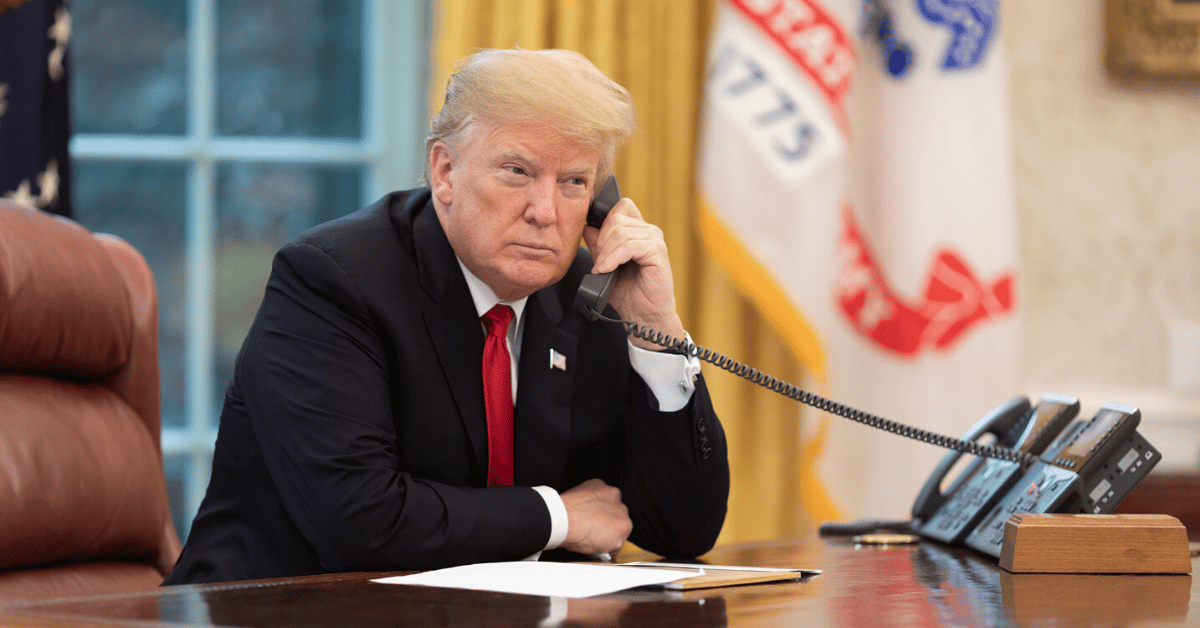


Pakistan’s diplomatic dance with President Donald Trump took a dizzying turn, flipping from praise to condemnation in less than a day. On Friday, Islamabad lauded Trump’s role in calming Kashmir tensions, only to slam his Iran strikes by June 22. This flip-flop exposes the shaky ground of U.S.-Pakistan ties, where flattery meets fury faster than a D.C. news cycle.
Fox News reported that Pakistan credited Trump with brokering a truce with India after a deadly Kashmir crisis in April 2025, only to denounce U.S. strikes on Iranian nuclear facilities as illegal days later.
The about-face underscores Pakistan’s knack for playing both sides, cozying up to Trump’s ego while guarding regional alliances. It’s a classic case of diplomatic whiplash, leaving observers wondering who’s leading whom.
Tensions in Kashmir, sparked by a massacre of tourists, had pushed India and Pakistan to the brink. Trump’s diplomatic nudge, praised as “pivotal leadership” by Pakistan on June 20, 2025, helped secure a truce. Yet, the same government that hailed Trump’s dealmaking prowess was quick to pivot when his bombs fell on Iran.
A White House lunch on June 19, 2025, saw Trump hosting Pakistan’s army chief, Asim Munir, for over two hours. Joined by Secretary of State Marco Rubio and Middle East envoy Steve Witkoff, the meeting tackled Iran-Israel tensions. Pakistan’s military called it a “detailed exchange,” but the goodwill didn’t last long.
Trump’s social media post, roughly a week before June 21, 2025, boasted of using U.S. trade leverage to broker the India-Pakistan deal.
He urged Israel and Iran to follow suit, claiming his dealmaking brought “reason, cohesion, and sanity.” The self-congratulation, however, hit a sour note when Pakistan’s tone shifted.
On June 20, 2025, Trump lamented on TRUTH Social that no Nobel Peace Prize would come his way, despite his work on India-Pakistan and other conflicts. “The people know, and that’s all that matters to me!” he declared. Pakistan’s initial praise seemed to fuel his narrative—until their condemnation stole the spotlight.
Trump announced U.S. strikes on three Iranian nuclear facilities on June 21, 2025, escalating tensions. Pakistan, with close ties to Iran, didn’t hesitate to cry foul. Their government labeled the strikes a “serious violation of international law,” siding with Tehran over Washington.
Prime Minister Shehbaz Sharif’s call with Iranian President Masoud Pezeshkian on June 22, 2025, doubled down on the criticism.
Sharif fretted that the U.S. targeted IAEA-safeguarded sites, a claim that reeks of selective outrage given Pakistan’s spotty nuclear record. The call was less about principle and more about regional posturing.
Pakistan’s support for Iran’s attacks on Israel, justified as “self-defense,” further complicates its stance. A Karachi demonstration on June 22, 2025, saw Shiite Muslims trampling a U.S. flag depiction while condemning Israeli strikes on Iran. The anti-American sentiment runs deep, making Pakistan’s brief Trump fandom all the more curious.
Mushahid Hussain, a former Pakistani Senate Defense Committee chair, told Reuters that Trump’s leadership benefits Pakistan. “If this panders to Trump’s ego, so be it,” Hussain quipped, admitting the flattery game European leaders also play. The bluntness reveals Pakistan’s strategy: stroke the ego, secure the leverage.
Trump’s scheduled meeting with India’s Narendra Modi at the G-7 summit was cut short for a Situation Room huddle on the Israel-Iran war.
The early exit shows Trump juggling multiple crises, with Pakistan’s mixed signals adding to the chaos. It’s a reminder that global alliances shift faster than a politician’s promises.
Pakistan’s condemnation of the U.S. strikes conveniently ignored Trump’s Kashmir success. Their “violation of international law” charge feels like a scripted jab, especially from a nation cozy with Iran’s regime. The hypocrisy stings, but it’s par for the course in geopolitics.
The U.S.-Pakistan relationship, already a tightrope, wobbled with this episode. Pakistan’s quick pivot from praising Trump to slamming his Iran policy shows a nation hedging its bets. It’s less about principle and more about survival in a volatile region.



